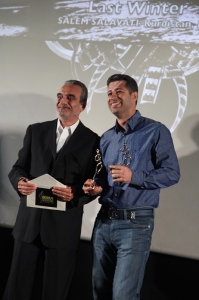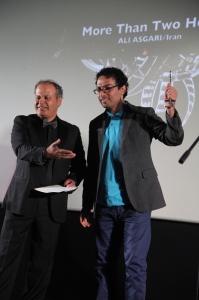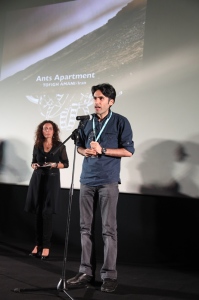Iranian Films in Kurdish and Farsi Reap Half of all BIFF Awards
Iranian films, both in Kurdish and Farsi, won half of the ten awards delivered at the 14th edition of the Beirut International Film Festival (BIFF), which was concluded this Thursday evening, including for Best Middle Eastern Feature Film and the top three awards under the Short Film category.
During the award ceremony at Abraj theaters in Furn ash-Shebbak, the jury announced that the Kurdish-language film The last winter (Zemestan Akhar) by Iranian director Salem Salavati had won two awards for Best Middle Eastern Feature Film and Best Feature Film Script.

Salem Salavati
Kurdish-language film The last winter already won, among others, the Special Jury Award at the Baghdad Film Festival, the FIPRESCI Award at the Yerevan Golden Apricot International Film Festival (Armenia), the Best International Film Award at the First Erbil International Film Festival, in addition to the Best Director and Best Actress prizes at the Duhok International Film Festival in Iraq. The setting is a remote village vacated by its inhabitants because it is gradually flooded. The mayor and his wife Baji are the only ones to stay behind and have no one but each other. Yet the elements bring them apart one night by chance and Baji is home alone. Her husband does his best to overcome the snow obstacle and reach her while she remains alone in the village, weaving the latest chapter of their story on a path of cloth.
The Special Jury Award for Feature Films went to Palestinian-French director Rani Massalha’s Giraffada, which is based on a true story when one of the two giraffes at the local zoo in the Palestinian town of Qalqilya bumped its head onto the wall out of fear and died during an air raid on the occupied Palestinian town in 2002. The film tells the story of a boy who gets emotionally attached to the giraffes at the zoo where his father works as a veterinarian and how he is the only one who can communicate with them. The veterinarian, his son and a French journalist try their best to bring in a male giraffe, but the female stops eating following the death of its companion and is, in turn, on the brink of death if no new mate is brought in, knowing that the only other zoo with a male giraffe is located in Tel Aviv. The film chronicles the smuggling of the male giraffe from Tel Aviv to Qalqilya and depicts the situation in the West Bank during the second Palestinian Intifada.
Iranian director Ali Asgari’s More than Two Hours won the ALEPH award for Best Middle Eastern Short Film.

Ali Asghari
More than Two Hours had won awards for Best Short Film at the Indianapolis Film Festival, Best Short Film at the Barcelona DH Film Festival, and the Grand Prix for Best Film at the Busan International Short Film Festival in South Korea. The film tells the story of a girl who loses her virginity and is left hemorrhaging. She and her friend look for a hospital to get treatment but she is unable to access the medical care she needs because she is not married.
Ants Apartment by Tofigh Amani is a Kurdish-speaking movie, which won the silver ALEPH award under the Middle Eastern Short Film category.

Toufigh Amani
It tells the story of a family of three living in a small apartment in the Iraqi desert after the war until one strange event changes their lives.
The bronze ALEPH in this category went to Kurdish-speaking Butterflies by Iranian director Adnan Zandi and Le Miroir, by Lebanese-French director Céline Kotaiche.
Butterflies, a three-minute movie, is about a woman breastfeeding her child on the street whereas Kotaiche’s Le Miroir chronicles the life cycle of women and its evolution across four seasons from birth to death, albeit from the standpoint of… a woman’s mirror.
The Orbit Special Jury Award for Best Middle Eastern Short Film went to With Thy Spirit by Lebanese director Karim Rahbani. It is about a priest who is inadvertently involved in another person’s death following a quarrel between the two men. He thus hesitates whether to come clean to the other monks about what happened, or keep the secret. His situation gets further complicated when, upon trying to hide the body, he sees the specter of Amin, a young boy from the Syrian town of Maaloula who has found refuge with the monks in Lebanon following the death of his parents.
Challat of Tunis won the Golden ALEPH for Best Middle Eastern Documentary while its director Kaouther Ben Hania also won an award for Best Documentary Director.
In a mix of documentary and feature film styles, Challat of Tunis tells a true story dating back to 2003 about an unknown man wandering the streets of Tunis on a motorbike and slashing women’s buttocks with a razor or sharp tool to “punish” them for their “tempting” attire. 11 years after these terrorizing events in Tunis, Kaouther Ben Hania sets out on a journey to identify the real Challat and, in so doing, addresses the issue of how men perceive women in society.
The Orbit Special Jury Award for Best Middle Eastern Documentary went to Syria Inside, by Syrian director Tamer Alawam who was killed a few months ago in Aleppo during the ongoing battles in Syria. His friends and colleagues, including German director Jan Heilig, finalized the documentary.
The BIFF jury was chaired by French actress and producer Julie Gayet who attended the opening ceremony. Other jury members include film festival adviser Alesia Weston, Protagonist Pictures CEO Mike Goodridge, 67-year-old Iranian actor Homayoun Ershadi who stars in A Most Wanted Man, and Lebanese media figure, writer and screenwriter Joelle Touma.
The Société Générale Award for Best Feature Film (according to the audience vote) went to The President by Iranian director Mohsen Makhmalbaf. This movie, which was the opening of the latest Venice Festival, is inspired by Arab Spring revolutions and tells the story of a dictator who runs away after a coup with his five-year-old grandson. The runaway dictator disguises as a street musician. He thus comes into contact with his people, gets to know them from a different point of view and realizes the injustice he has inflicted on them. The last scene of the movie is reminiscent of the end of late Libyan leader Muammar Gaddafi knowing that Makhmalbaf shot his film in Georgia.
The awards ceremony was followed by the screening of A Most Wanted Man by Dutch director Anton Corbijn, starring the late Philip Seymour Hoffman, Rachel McAdams, Homayoun Ershadi, Robin Wright and Grigoriy Dobrygin.








